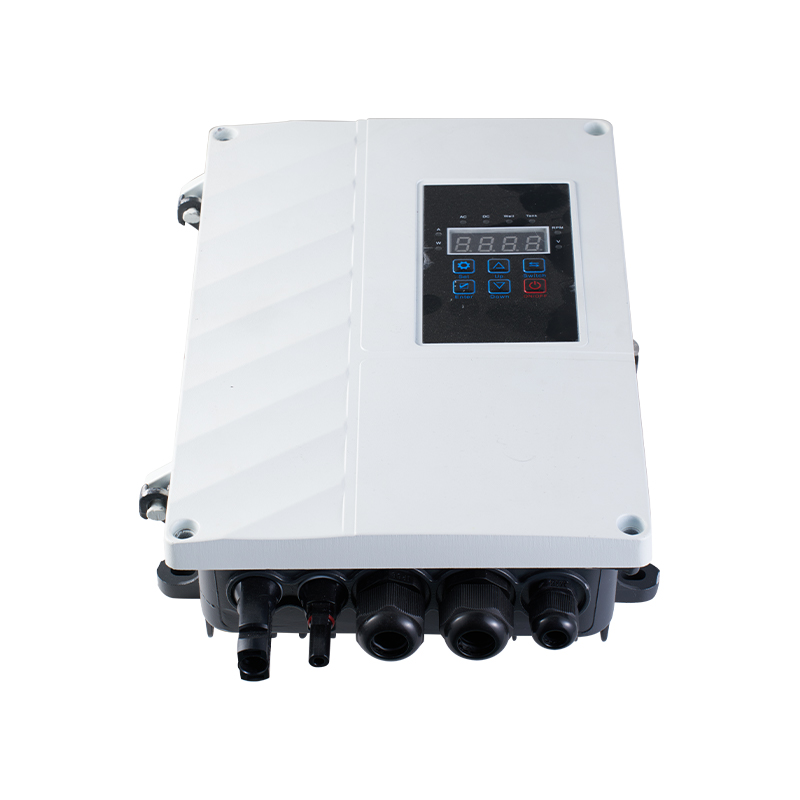Stable Industrial-grade Submersible Pump
The Stable Industrial-grade Submersible Pump is engineered to deliver ...

Hybrid inverter technology has revolutionized the way we manage energy, particularly in renewable energy systems like solar power. The rise of the intelligent hybrid inverter, smart hybrid inverter, and smart solar inverter has introduced a level of flexibility and efficiency that is transforming how residential, commercial, and industrial properties utilize energy. By combining the capabilities of traditional inverters with smart technology, hybrid inverters allow users to optimize their energy consumption, reduce reliance on the grid, and better integrate renewable energy sources into their daily lives.
The intelligent hybrid inverter is designed to manage multiple energy sources, such as solar panels, batteries, and the electrical grid, all in one unit. It dynamically controls how energy is stored, used, and supplied, allowing for real-time adjustments based on consumption patterns and availability. This technology enables homes and businesses to make the most of their solar energy, storing excess energy generated during the day and using it when solar generation decreases or demand spikes. By integrating with battery storage systems, the intelligent hybrid inverter ensures that energy is available at all times, reducing reliance on grid power and ultimately lowering electricity costs.
The smart hybrid inverter takes this functionality a step further by incorporating advanced communication and monitoring features. These inverters are equipped with cloud connectivity, allowing users to monitor energy production and consumption remotely via smartphone apps or online dashboards. The real-time data provides valuable insights into energy usage patterns, helping users make informed decisions about when to store energy, use grid power, or rely on solar generation. This level of transparency empowers homeowners and businesses to better understand their energy needs and make adjustments that can improve overall energy efficiency. For instance, by shifting high-energy activities like laundry or heating to times when solar power is abundant, users can further reduce their dependence on the grid.
Similarly, the smart solar inverter is a key component of modern solar energy systems. It plays a critical role in converting the direct current (DC) generated by solar panels into alternating current (AC) that can be used by appliances and systems within a building. What sets the smart solar inverter apart is its ability to work seamlessly with other smart devices and energy storage solutions.The smart solar inverter can even prioritize renewable energy over grid power, ensuring that solar energy is used first and grid electricity is only drawn when necessary.
The integration of intelligent hybrid inverters, smart hybrid inverters, and smart solar inverters is making energy management more sophisticated and efficient. These systems not only provide the technical capabilities to store and distribute energy intelligently but also offer practical benefits like increased energy independence and lower environmental impact. By reducing reliance on the grid, users can lower their energy bills and mitigate the effects of fluctuating electricity prices. Furthermore, these inverters contribute to a more sustainable future by optimizing the use of renewable energy, decreasing dependence on fossil fuels, and reducing carbon emissions.
One of the standout features of hybrid inverter technology is its ability to provide energy security in the event of grid failures. Many hybrid inverters are designed with backup power functionality, meaning they can continue to provide power to critical loads, even when the grid is down. This capability makes hybrid inverters particularly valuable in areas prone to power outages, as they ensure continuity of service and reduce reliance on backup generators that may rely on fuel.
The emergence of intelligent hybrid inverters, smart hybrid inverters, and smart solar inverters has drastically improved energy management by providing better integration between solar energy, battery storage, and the electrical grid. These technologies enable smarter, more efficient energy use, reduce costs, and increase energy independence. By adapting to changing conditions and allowing for better monitoring and control, hybrid inverters are paving the way for a more sustainable and reliable energy future.